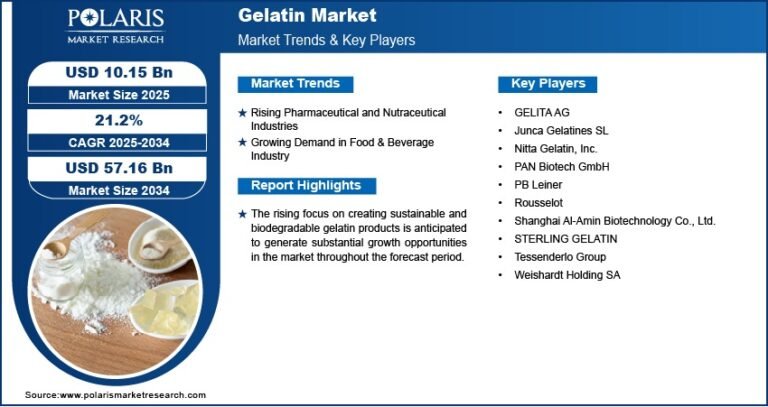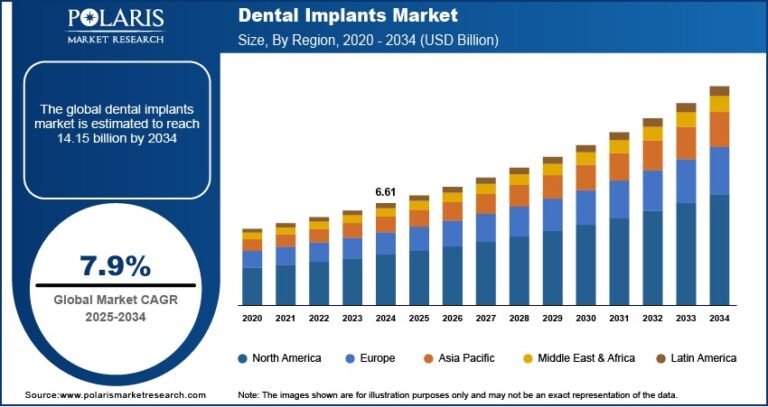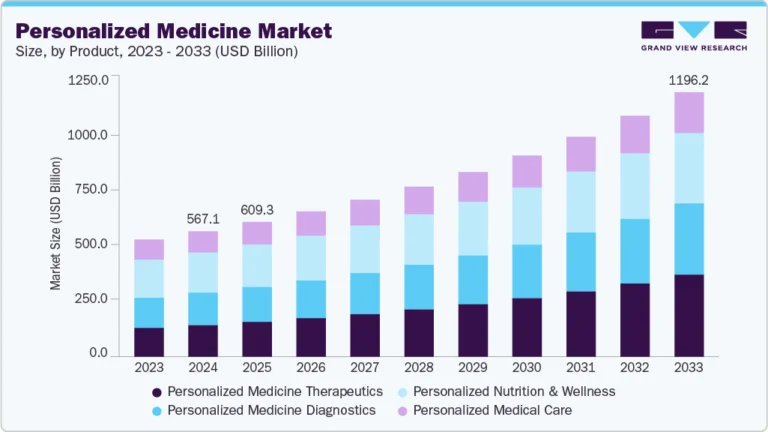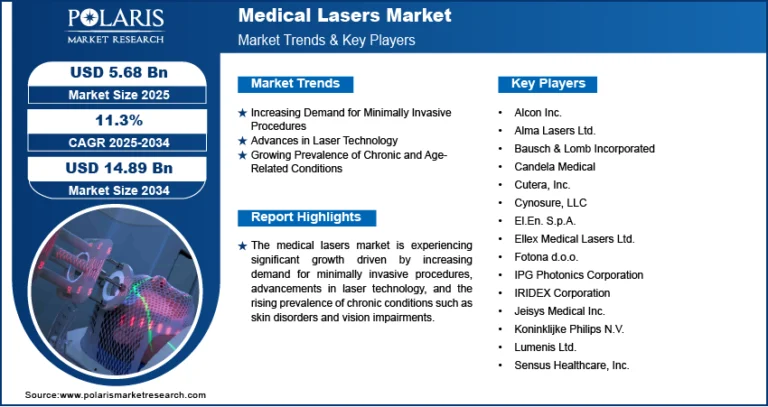Regenerative Medicine Market Size, Share & Trends Analysis growing at a CAGR of 16.83% from 2025 to 2030
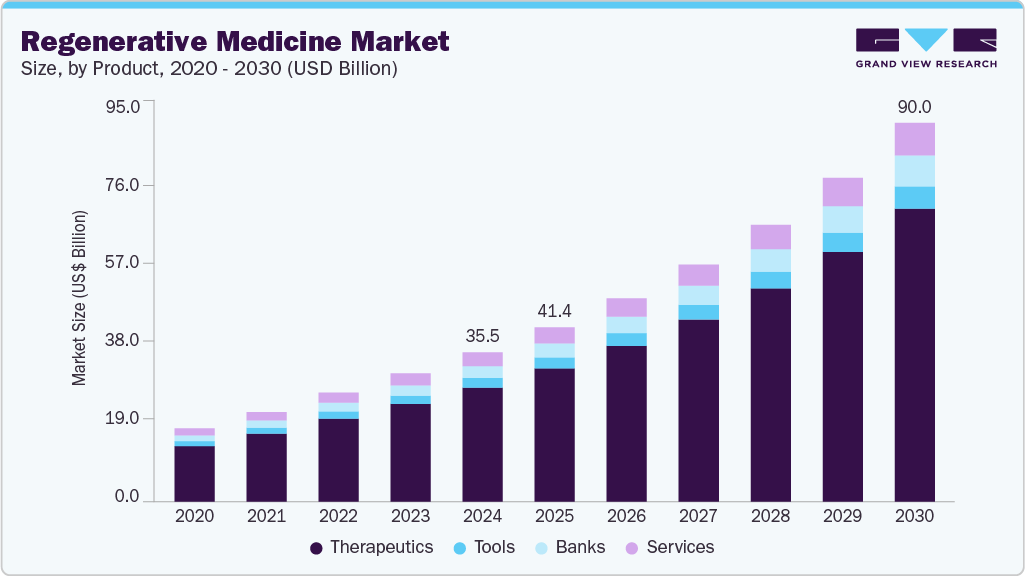
The global regenerative medicine market size was estimated at USD 35.47 billion in 2024 and is projected to reach USD 90.01 billion by 2030, growing at a CAGR of 16.83% from 2025 to 2030. Recent advancements in biological therapies have resulted in a gradual shift in preference toward personalized medicinal strategies over the conventional treatment approach.
Key Market Trends & Insights
- North America regenerative medicine market held the largest share of 58.62% in 2024.
- By product, the therapeutics segment held the largest revenue share of 76.39% in 2024.
- By product, the banks segment is expected to witness the fastest CAGR of 17.38% from 2025 to 2030.
- By therapeutic category the, oncology segment held the largest share of 31.87% in 2024 and is expected to witness the fastest CAGR of 17.66% from 2025 to 2030.
- By therapeutic category the, cardiovascular segment is anticipated to witness significant growth during the forecast period.
Market Size & Forecast
- 2024 Market Size: USD 35.47 Billion
- 2030 Projected Market Size: USD 90.01 Billion
- CAGR (2025-2030): 16.83%
- North America: Largest market in 2024
- Asia Pacific: Fastest growing market
Request a free sample copy or view report summary: https://www.grandviewresearch.com/industry-analysis/regenerative-medicine-market/request/rs1
This has created opportunities for companies that are involved in the development of biological therapeutics. Furthermore, the rise in incidence of degenerative disorders has led to an increase in focus on research to discover novel regenerative therapies. The COVID-19 outbreak has considerably impacted various markets, including the regenerative medicine and T-cell therapy manufacturing market. The SARS-CoV-2 coronavirus crisis has significantly affected the delivery of CAR T-cell therapies. This impact is not just limited to patient care. It has extended beyond patient care to administration, logistics, and limited healthcare resources. Several universities have slowed down clinical trial enrollment and other research activities. However, the market continues to expand as market players such as Novartis provide access to the therapies, such as Athersys, Inc.’s MultiStem, which is a highly relevant COVID-19 therapy.
Furthermore, the regenerative medicines have been identified to have the unique ability to alter the fundamental mechanisms of diseases. Regenerative therapies in trials provide promising solutions for specific chronic indications with unmet medical needs. In December 2021, Novartis announced T-ChargeTM, a next-generation CAR-T platform that would be a beneficial tool for novel investigational CAR-T cell therapies.
Significant advancements in molecular medicines have resulted in the development of gene-based therapy, which uses targeted delivery of DNA as a medicine to fight against various disorders. Gene therapy has high potential in the treatment of cancer and diabetes type 1 & 2 through restoring gene function. Currently, gene-based therapies are used in the treatment of patients suffering from cancer, oncology, infectious diseases, cardiovascular disorders, monogenic diseases, genetic disorders, ophthalmological indications, and diseases of the central nervous system. These factors have contributed to the global regenerative medicine Industry.

